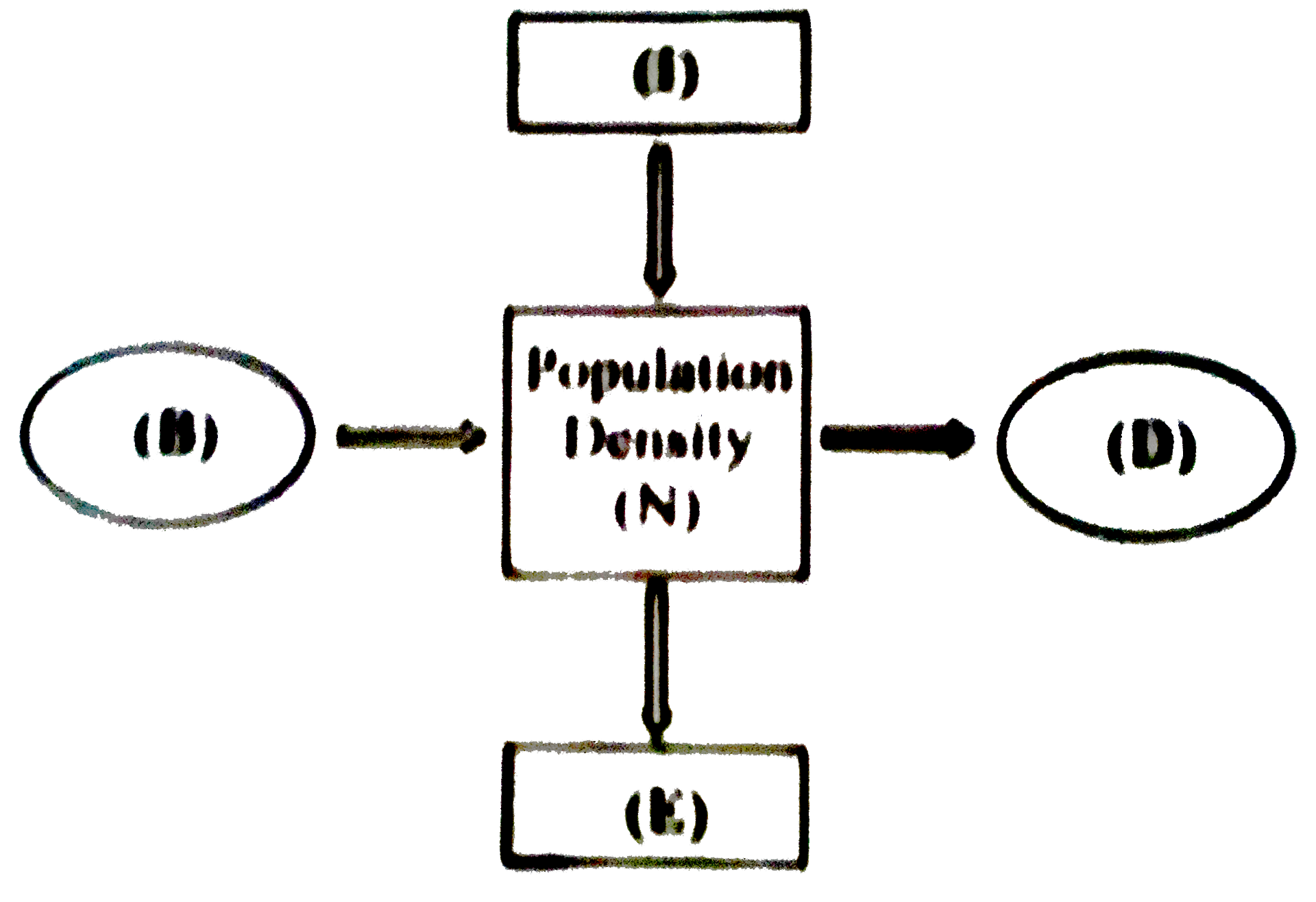A biologist studied the population of rats in a barn. He found that the average natality was 250, average mortality 240, immigration 20 and emigration 30. The net increase in populations is :
Zero
10
15
5
The correct Answer is:A
Step by step video, text & image solution for A biologist studied the population of rats in a barn. He found that the average natality was 250, average mortality 240, immigration 20 and emigration 30. The net increase in populations is : by Biology experts to help you in doubts & scoring excellent marks in Class 12 exams.
Topper's Solved these Questions
- BOOK - PHYSICS WALLAHCHAPTER - ORGANISMS AND POPULATIONS EXERCISE - LEVEL - 230videos
ORGANISMS AND POPULATIONS
- BOOK - PHYSICS WALLAHCHAPTER - NEURAL CONTROL AND COORDINATION EXERCISE - NEET Past 10 Years Questions25videos
NEURAL CONTROL AND COORDINATION
- BOOK - PHYSICS WALLAHCHAPTER - PHOTOSYNTHESIS IN HIGHER PLANTS EXERCISE - NEET PAST 10 YEARS QUESTIONS23videos
PHOTOSYNTHESIS IN HIGHER PLANTS
Similar Questions
Read the following information and five statements given below it carefully and answer the question which follow :
Excerpt from a research report - 'Average life expectancy in southern part of India is far more than that in Western India. While the average life of a native of South India is 82 years, the average life of a native of Western India is only 74 years.'
Based on the above fact, the proposal that the above study makes is that if an individual moves from Western India to South India, his/her life life expectancy would immediately increase by eight years.
Which of the following statement would weaken the above-mentioned studies proposal that people belonging to Western parts of India should move to South India to increase their life expectancy ?
1) The average life expectancy of population living in Eastern part of the country is also less than the population living in South India.
2) Nearly 80% of the population in Southern India has a minimum age of 83 years
3) Higher life expectancy in Southern India can be ascribed to the genetic makeup of the population belonging to that area.
4) The average life expectancy of South India is comparable to the best averages in the world.
5) Higher life expectancy in the Southern India can be attributed to better environmental conditions and better healthcare facilities.View SolutionA biologist studied the population of rats in a barn. He found that the average natality was 250, average mortality 240, immigration 20 and emigration 30. The net increase in populations is :
View Solution
Knowledge Check
- Question 1 - Select One
A biologist studied the population of rats in a barn. He found that the average natality was 250, average mortality 240, immigration 20 and emigration 30. The net increase in populations is :
AZeroB10C15D5 - Question 2 - Select One
A biologist studied the population of rats in a barn. He found that the average natality was 250, average mortality 240, immigration 20 and emigration 30. The net increase in populations is :
A15B5CZeroD10 - Question 3 - Select One
A biologist studied the population of rats in a barn. He found that the average natalty was 250, average mortality 240, immigration 20 and emigration 30. The net increase in populations is:
A5BZeroC10D15
The given figure represents different factors affecting population density (N). If B= natality D= mortality ,E=emigration and I= immigration, then select the incorrect option regarding these.
 View Solution
View SolutionWhich of the following contributes to increase in population density ?
(a) Natality
(b) Mortality
(c) Immigration
(d) EmigrationView SolutionThe given figure represents different factors affecting population density (N). If B= natality D= mortality ,E=emigration and I= immigration, then select the incorrect option regarding these.
 View Solution
View SolutionWhat would be the total population at the end of the year if population at the beginning of the year is 5000 and population changed during the year is-birth 250, death 60, immigration 30 and emigrant 15?
View SolutionFind the average increase rate if increase in the population in the first year is 30% and that in the second year is 40%.
View Solution
